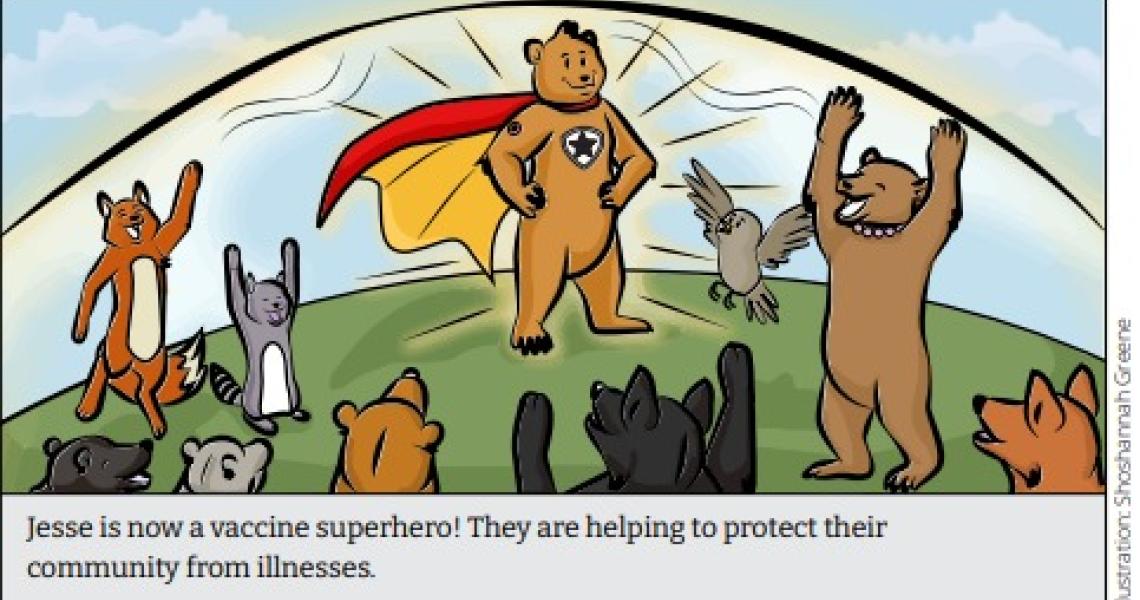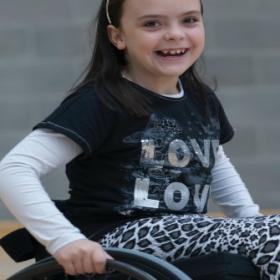Immunizations can cause some pain. This pain can cause stress and anxiety for some children and their parents.
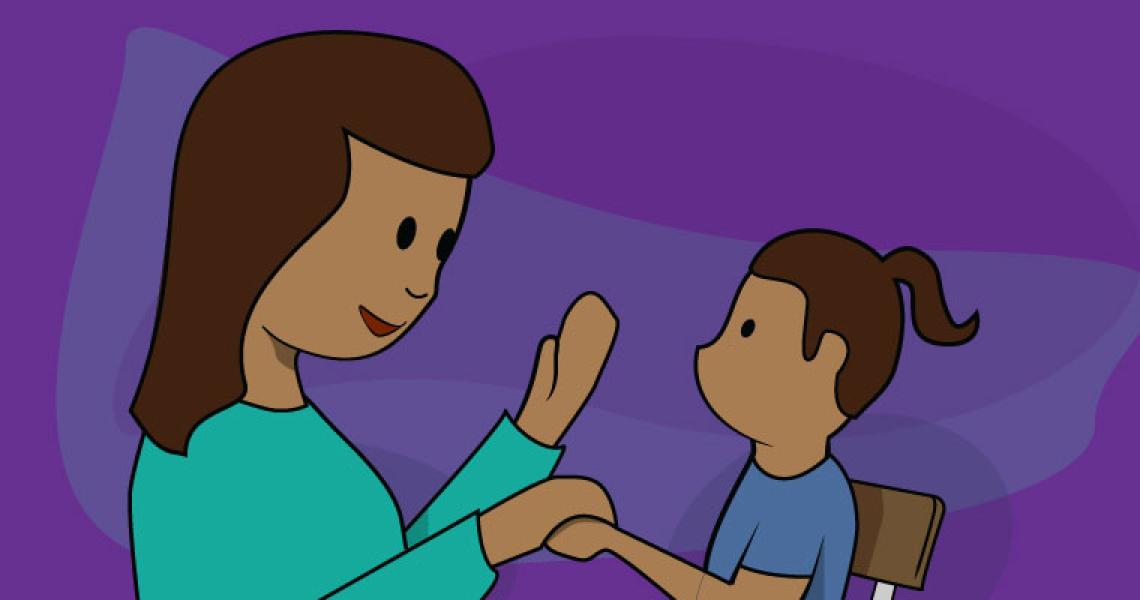
Prepare your child
Children who are old enough to understand can be prepared for the immunization. It's usually best to tell toddlers and preschool-age children about the immunization as close to when it's given as possible. Be calm when talking about the immunization and use a matter-of-fact, supportive approach. Read about what to do and what not to do when discussing the immunization with your child.
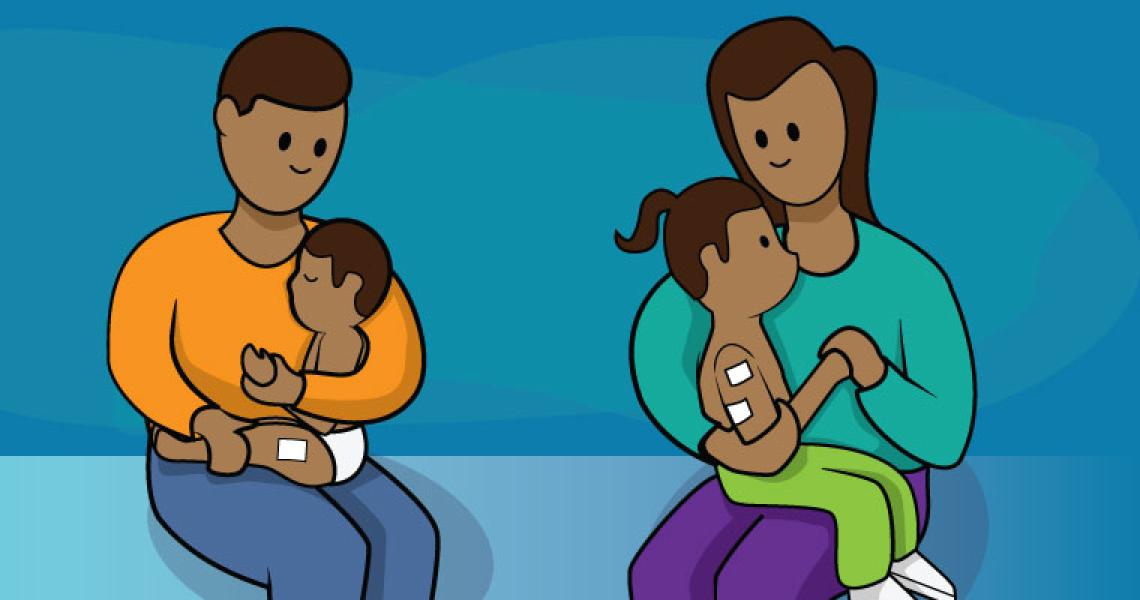
Numb the skin
Numbing creams and patches decrease the pain when the needle is given. You can buy numbing creams or patches at your local pharmacy without a prescription. They are safe for babies and young children. You will need to put the cream or patch on before the appointment because they take 30 to 60 minutes to work. Read more about using numbing creams and patches for immunizations.
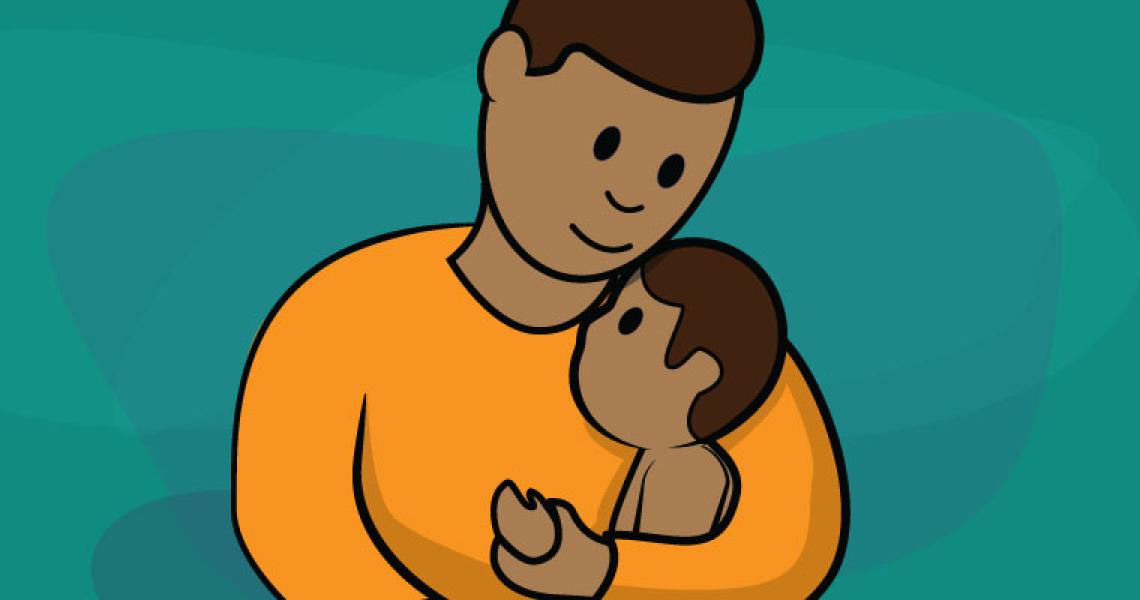
Stay calm
Stay calm and speak to your child in a soft and even voice before, during, and after the immunization. If you are nervous, take slow, deep breaths to calm yourself. Breathe so your belly expands, not your chest. Children are very aware of the emotions of their caregivers. When you stay calm, it helps your child stay calm and feel like everything is okay.

Hold your child upright
Cuddle your child firmly in your lap in a seated position. If you are breast/chestfeeding your child, hold them in a position they can feed in. Ask your health care provider for examples of positioning. Being held close to you calms your child and helps keep them still. Being held upright helps children feel more secure and in control and can reduce their pain with immunization.
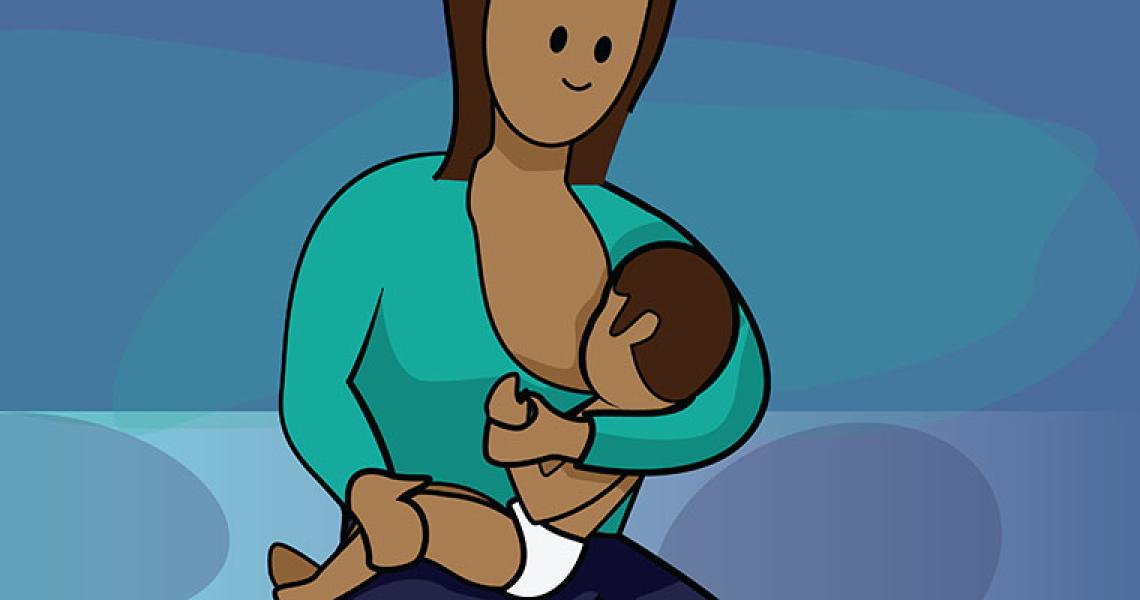
Breast/chestfeed
Breast/chestfeed your baby before, during, and after the immunization. Breast/chestfeeding comforts your baby, sucking distracts them, and the sweet taste of the milk can help reduce their pain. Breast/chest milk also contains natural calming substances. It is safe for babies to breast/chest feed during immunization. There is no evidence that babies will choke or associate feeding with pain.
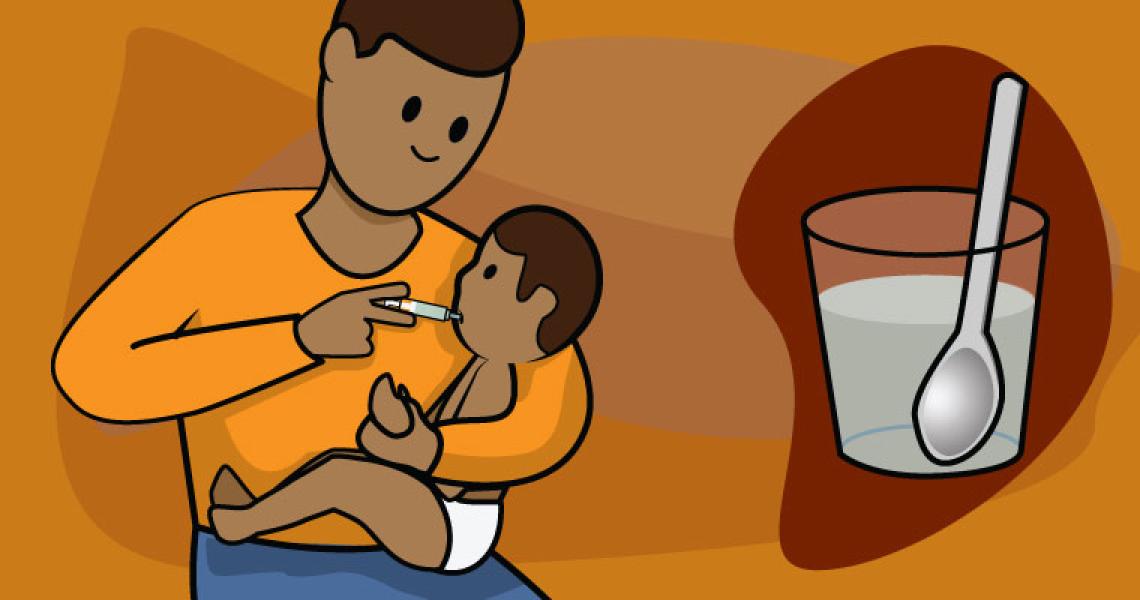
Give sugar water
Tasting something sweet can help reduce your child’s pain. If your child is 2 or younger, you can give them sugar water 1-2 minutes before the immunization. Learn how to prepare and give sugar water. Children who are breast/chestfeeding during the immunization or getting the rotavirus vaccine (given by mouth) do not need sugar water because breast/chest milk and the rotavirus vaccine taste sweet.

Distract your child
Taking your child's focus away from the needle can reduce their pain. Distract your child before, during, and after the immunization. Use bubbles, a pinwheel, a squeaky, or a light-up or musical toy. You can also sing to your child or talk to them about something fun, like their favourite activity or superhero. If your child is older, they can use books, music, or videos to distract themselves.

Deep breathing
When your child breathes deeply, it can help relax and distract them. If your child is 3 years or older, have them take slow deep breaths before, during, and after the immunization. To help your child breathe deeply, have them blow out during the immunization. Ask your child to blow a party blower or bubbles or to blow out pretend candles on a cake.

Be positive
Keep a positive attitude and recognize your child's efforts. After the immunization, say things like, "I'm so happy you got the vaccine!" and "I knew you could do it!" Praising your child helps them feel good about the skills they learned from the experience – skills that will help in future difficult situations.
When discussing the immunization with your child
- Stay calm and speak in an even and soft tone of voice.
- Answer your child’s questions honestly. For example, say, “You need the vaccine to stay healthy. The nurse will put in your arm with a needle. You will feel a quick poke."
- Use words that lessen anxiety, like pressure, squeezing, and poking.
- Praise your child for their efforts. Say things like, "I'm proud of you for doing it," or "I really liked how you took lots of deep breaths while the nurse gave you the vaccine."
- Over-reassure your child with phrases like, "It will be over soon, and you will be okay."
- Use words that can cause anxiety, such as shot, pain, hurt, and sting.
- Give false reassurance, such as "It won't hurt."
- Apologize. For example, don't say, "I am really sorry you must go through this."
Use the CARD system
Videos from AboutKidsHealth at The Hospital for Sick Children
- Reduce vaccination pain in babies - Part 1: How and why? (AboutKidsHealth at The Hospital for Sick Children)
- Reduce vaccination pain in babies - Part 2: Breastfeeding (AboutKidsHealth at The Hospital for Sick Children)
- Reduce vaccination pain in babies - Part 3: Holding (AboutKidsHealth at The Hospital for Sick Children)
- Reduce vaccination pain in babies - Part 4: Topical Anaesthetics (AboutKidsHealth at The Hospital for Sick Children)
- Reduce vaccination pain in babies - Part 5: Sugar Water (AboutKidsHealth at The Hospital for Sick Children)
- Reduce vaccination pain in babies - Part 6: Your state of mind (AboutKidsHealth at The Hospital for Sick Children)
- Reduce vaccination pain in babies - Part 7: Distraction (AboutKidsHealth at The Hospital for Sick Children)
JESSE THE BEAR STORY
Jesse is going to get a vaccine and is a little nervous. Jesse brought a favourite toy and used belly breathing to feel calm. There was a tiny pinch on the arm, and it was over. That was easy! Jesse is now a vaccine superhero!

